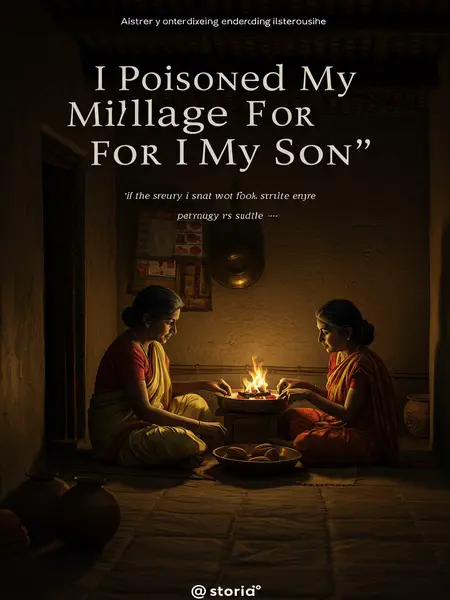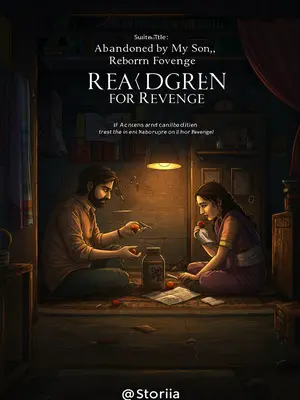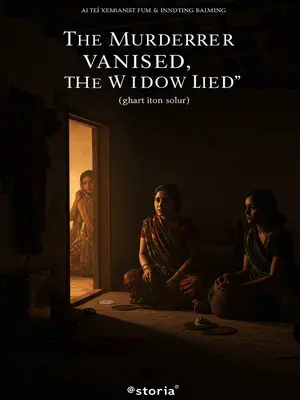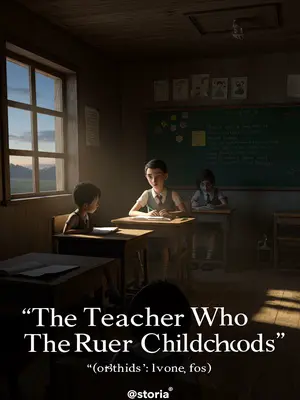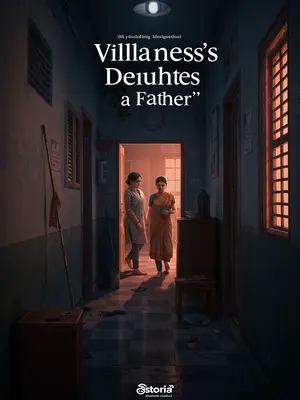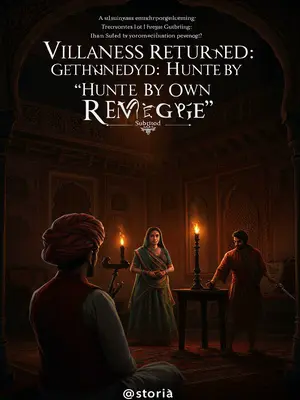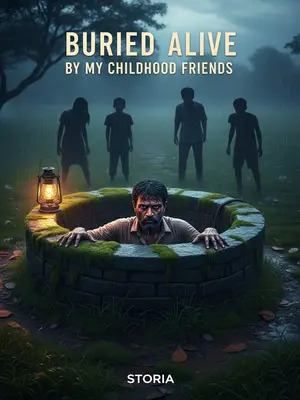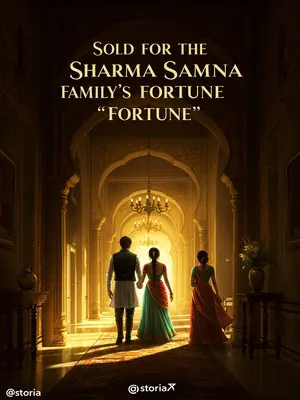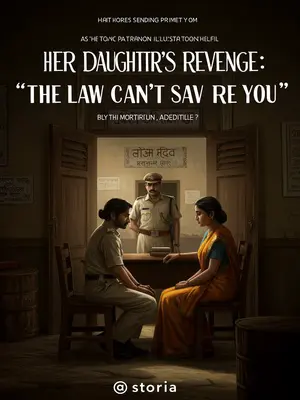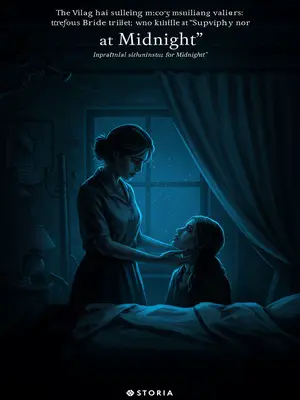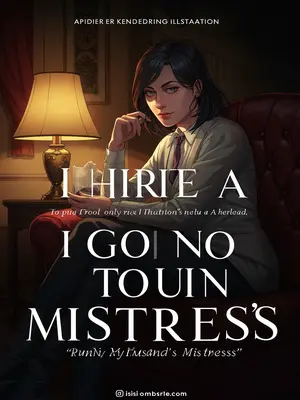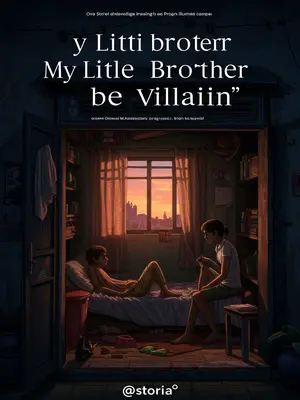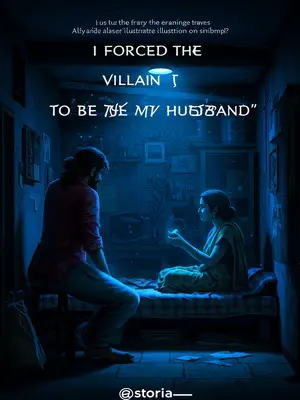Chapter 2: The Crime and Its Echo
The air was thick with a sharp, fishy stench and the heavy odour of blood, the nauseating smell rushing straight to my head.
The scent clung to my nostrils, sharper than the smoke from the chulha, mingling with the faint reek of raw onions and sweat that still hung in the old brick walls. Flies buzzed at the open window, drawn by the promise of spilled blood. I wiped my forehead with the edge of my kurta, but the smell wouldn’t leave, turning my stomach with every breath.
When the police arrived, I was examining the last corpse.
Their boots left red prints on the floor, and one constable paused to mutter a quick Hanuman Chalisa under his breath. Their khaki uniforms were smeared with dust from the road, boots thumping heavily against the cracked stone floor. Sirens had startled the crows from the mango tree outside. I was crouched beside the last body, unmoved, while neighbours peered in from the street, their faces pale and horrified.
It was Uncle Sharma, who used to give me sweets when I was a child.
I remembered how, during Holi, he’d sneak me extra laddoos when Ma wasn’t looking. His booming laughter once filled the lanes of Kaveripur; now, he lay before me, as silent as the ruins of the old temple.
He rarely drank water, so the poison took longer to act. His bark-like face was twisted tight in agony.
Even in death, his features held a stubbornness—a refusal to go quietly. His hands, always so generous, were now clenched into tight fists, nails digging into his palms. The villagers used to say, “Sharmaji ka shareer toh pathar ka hai”—his body is like stone. In the end, even poison had to fight to claim him.
"Stop! Put it down!"
The command echoed, sharp as the slap of a teacher’s ruler on a desk. Police voices, thick with panic, cut through the hush of the house, but I didn’t flinch.
Click—
By the time the police shouted, I had already snapped Uncle Sharma’s neck with practiced ease.
There was a sickening crack, like breaking the stem of a dried marigold. My fingers moved without hesitation, steady as when I solved math problems back in school. The onlookers gasped—one woman fainted, and someone outside muttered a quick prayer to Hanumanji.
Of the ninety-eight people in Kaveripur—besides me—not a single one survived.
The entire village—a lifetime of voices, gossip, laughter, arguments—was reduced to silence. Only the crows remained, circling above, their cries harsh in the morning air. I was the last one left, standing amidst a sea of bodies, the final testament to a century of broken dreams.
"Hands up! Put your hands on your head! No sudden moves!"
The officers swarmed in, surrounding me, guns drawn.
Their accents betrayed them—one from Awadh, another from eastern Uttar Pradesh. They barked orders with shaking hands, sweat beading on their foreheads despite the early hour. Outside, someone was frantically calling relatives, while a dog barked, straining at its leash.
I raised my hands, admiring my handiwork with a satisfied smile, and let them cuff me without the slightest resistance.
The cuffs clinked cold against my wrists, biting into the skin already raw from the work of the night. I stood up slowly, allowing myself a small, twisted smile, as though posing for a photograph I knew would be splashed across every Hindi newspaper in the state by tomorrow.
Before leaving, I even gave my parents’ corpses at my feet a casual kick.
“Chalo, ab aaram karo,” I muttered under my breath, the words hollow and unfeeling. The constables recoiled in shock—one whispered, “Kya insaan hai yeh?” Their bodies didn’t move, of course, but a strange satisfaction flickered through me at that final, disrespectful act.
"Rohan, why did you do it?"
In the interrogation room, the veteran inspector asked me for the fifty-eighth time.
His voice was hoarse, weary from hours of questioning. The fan overhead spun lazily, doing little to drive away the late afternoon heat. The cheap wooden table separating us was stained with tea rings and biro marks, relics of countless past interrogations.
Looking at his stern face, I shrugged nonchalantly:
His eyes, heavy-lidded and red, bored into me as if searching for a hidden answer. I just let my shoulders drop, trying to look as uninterested as possible, even though my heart was racing.
"Inspector, I’ve already told you—I’m doing society a favour."
I twirled the edge of my cuff chain with a finger, putting on an air of bored arrogance. “Society ka bhala kar raha hoon,” I repeated, letting the words hang in the thick, unmoving air.
"Those old folks were useless, just wasting social resources. By taking care of them, didn’t I do a good deed?"
I leaned back in my chair, almost as if I was at a college debate competition, delivering my argument with a smugness that set everyone’s teeth on edge. The constable’s fist tightened on his lathi, lips pressed into a thin, white line.
"Zubaan sambhal ke baat kar!"
The young constable taking notes couldn’t stand my attitude and barked at me, his face tense with anger.
He shot me a look that could have burned a hole through steel. The tip of his pen snapped, the ink bleeding out across the page, just as he nearly banged his notebook shut in frustration. “Zyada bakwas mat karo!” he muttered under his breath.
The old inspector flipped through the thick case file, his expression growing darker by the second:
He thumbed through the papers, the rustle echoing in the cramped room. Sweat trickled down his temples, tracing lines through the dust. Each turn of the page made his frown deepen, as if the weight of my words and deeds was pressing down on him, one sheet at a time.
"Do you know your parents had cancer? To save money for your education, they never went to the hospital even once."
He tried to soften his tone, the old-school kind of inspector who still believed in the goodness of people. His voice was thick with disbelief, as if clinging to some hope that I might break down and repent.
"Oh?"
I tilted my head, feigning innocence:
I widened my eyes for effect, lips curled into a small, mocking smile. The tube light above flickered, making my shadow jump against the wall. “Aap keh rahe hain toh sahi hi hoga, Inspector saab.”
"I really didn’t know that. But it doesn’t matter. People with that kind of illness die anyway. Isn’t that an even bigger waste of resources? Rather than waiting for them to die slowly, I just sent them off sooner. Saved them the suffering."
My words came out cold, calculated. I watched for a flicker of doubt or disgust in the inspector’s face, but he just stared back, jaw set. “Life is cheap here, sir,” I added, barely above a whisper.
"And your dadi—she even used her funeral savings to help you go to college."
His voice caught at the mention of my grandmother, as though her sacrifice might finally pierce my armour of indifference.
"Ugh, don’t mention her."
My face darkened, a hint of annoyance surfacing:
I made a face, as if the very memory disgusted me. “Dadi ke naam pe kuch mat bolo, Inspector. Woh bhi koi madad thi?”
"That old woman pinched and scraped for years, and all she gave me was two hundred rupees. What was that—tossing a coin to a beggar?"
I spat the words out, angry and dismissive. “Bas do sau rupaye de diye—sharam aani chahiye thi.” For a moment, the inspector looked as if he might reach across the table and slap me.
The old inspector choked on my callous words, his face as if he’d swallowed a neem seed.
He pressed his lips together, face twisting in disgust. You could almost hear the silent curses tumbling through his mind—if this was his own son, he would have dragged me out by the ear, straight to the temple.
I yawned and helpfully supplied the next question for him.
The silence stretched, heavy and tense. I tapped my fingers on the table, stifling a yawn, and threw him a lifeline. “Agle sawaal pe aa jao, Inspector. Kya soch rahe ho?”
"I know what you want to ask. The sarpanch, Uncle Sharma, Aunty Lata—the whole village did me favours. So to keep them from being lonely, I killed them all too. This way, they’ll have company on the road to the next life, right?"
I recited the names almost sing-song, as though reading from a list of wedding guests. “Sab ko saath bhej diya, Inspector saab—ab akela kaun marega?”
"Inspector, don’t you think I’m considerate?"
My lips curled into a sneer, eyebrows raised. The room felt colder now, the air thick with the smell of dried sweat and cheap soap.
"Enough!"
The young constable slammed the table, snapping his pen in two.
The bang rattled the tea cups, the constable’s face red as a tomato. “Ab bas! Bakwaas band kar!” The inspector barely restrained him with a raised palm.
"Rohan, did you feed your education to the dogs? They were your greatest benefactors, like second parents, and you can still laugh after doing this? You’re lower than an animal!"
He spat at me, the words stinging more than any slap could. “Padhai kar ke bhi kuch nahi seekha, nalayak!” he added, voice trembling with emotion. The insult stung the old inspector too, who closed his eyes for a moment, as though in silent prayer.
He shot to his feet and spat at me.
The spittle landed close to my shoes, but I didn’t move. In that instant, I wondered if he’d raise his hand, but the old inspector’s glare kept him in check.
If he hadn’t been clinging to his last bit of professionalism, he probably would have hit me already.
His knuckles whitened on the chair back. The air crackled with tension, the old rules of discipline barely holding the young man in place.
But seeing him so furious, I wasn’t the least bit afraid:
My heartbeat stayed steady. I almost pitied him—still clinging to outrage, as if it made a difference. “Kya farak padta hai?” I thought, looking away.
"Inspector, what are you so mad about? If you’re so upset, you can go keep them company yourself."
I smirked, the challenge hanging between us. “Aap bhi chale jao, Inspector, sabko company dene.”
"You…!"
The young constable’s face flushed, his chest heaving, then he stormed out, unable to stand it:
His boots echoed down the corridor, the door slamming behind him. The air settled, but the anger still pulsed, hot and alive.
"I can’t interrogate him. Someone else do it. This person is more beast than beast!"
His voice faded as he stalked away, the others outside shooting me dirty looks as the word spread. “Paagal hai pura,” someone whispered.
I pursed my lips, my stubborn silence grinding the interrogation to a halt once more.
For a few moments, the only sound was the ceiling fan, creaking in the heavy silence.
The old inspector beside me still refused to give up.
He leaned forward, stubbornness written in every line of his weathered face. “Ye case toh solve karke hi rahenge,” I could see him thinking.
He tapped the table with a finger, his hawk-like eyes boring into me:
Taka-taka—his fingernail clicked against the wood. His stare was intense, sharp enough to strip the truth from my bones.
"There must be a reason. Where there’s a cause, there’s a result. Rohan, if you confess honestly, maybe you’ll get a lighter sentence."
His voice was almost pleading, a last throw of the dice. “Sach bata de, beta. Shayd saza kam ho jaaye.”
"A lighter sentence?"
Looking at his solemn face, I sneered, as if he were an idiot:
I laughed, shaking my head. “Saza kam? Aap sapne dekh rahe hain, Inspector?”
"Arrey, inspector, don’t the police have to pass IQ tests? I killed more than a hundred people, and you’re talking about a lighter sentence? How stupid can you get?"
I let the words hang in the air, the sarcasm thick as the humidity before a monsoon rain. The inspector’s mouth fell open, then snapped shut with a click.
"Hopeless!"
The old inspector finally lost it, storming out with a sickly look on his face.
He muttered curses under his breath, his steps uneven as he left the room. The door banged shut, and a hush fell over the police station, as if even the walls were ashamed of what they’d heard.
Another one driven off in anger.
Tch. Boring.
I rolled my eyes, settling back into my chair. The taste of bitter tea still lingered on my tongue, mixing with the metallic tang of fear and fatigue.
